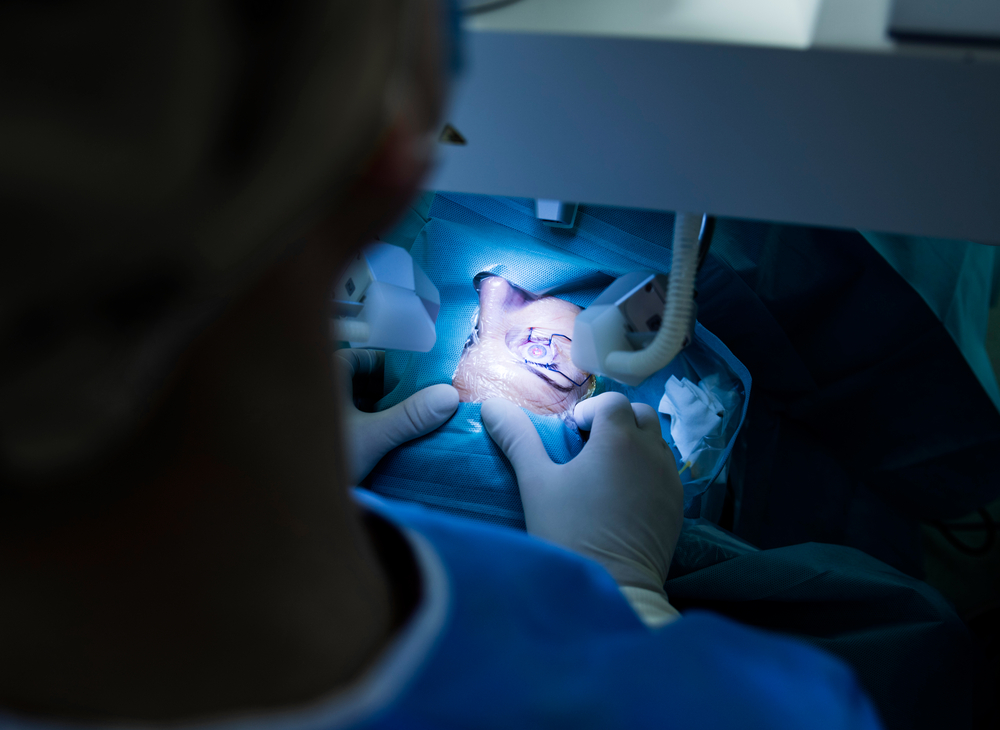Cataract Laser Surgery Improves Sight of Alport Patient with Lens Abnormality

Cataract laser surgery may be a way to treat the bulging eye lens that Alport disease can cause, a case study suggests.
The report was only the second account of doctors performing the surgery on an Alport patient, researchers at the Cleveland Clinic Cole Eye Institute said. The other case study involved two patients.
Although the three patients constitute a very small population, the cataract laser surgery was so sucessful that it might be a better way to fix bulging lens than surgery to remove the lens capsule, the team said.
Their article, “Femtosecond laser-assisted cataract surgery in anterior lenticonus due to Alport syndrome,” appeared in the American Journal of Ophthalmology Case Reports
Anterior lenticonus is the scientific name for the bulging lens that many Alport patients develop. The lens capsule, which consists of a layer of surface cells, can become so thin in these patients that its front breaks. This causes the center of the lens to bulge.
Researchers said one way to treat the problem is surgery to replace the damaged lens with an artificial one. They titled their article “Femtosecond laser-assisted cataract surgery in anterior lenticonus due to Alport syndrome.”
Using conventional surgery to remove an Alport patient’s lens capsule can be challenging, however. That’s because the capsule has developed an abnormal structure — one that is either too fragile or too elastic.
The case study dealt with a 53-year-old man with Alport syndrome whose vision had become severely impaired. The front surface of his lens bulged, and there was damage to both eyes’ nucleus, or central part of the lens.
He also had cornea abnormalities that caused astigmatism, or blurred vision. The cornea is the clear front part of the eye.
Doctors tried femtosecond laser-assisted cataract surgery to fix the astigmatism. It corrected many of the man’s lens problems, improving his vision in just one week.
An earlier study had shown that the surgery helped two Alport patients obtain almost perfect vision.
Since the only accounts of this type of surgery involve just three Alport patients, it is not possible to compare its effectiveness with other methods, the researchers said.
“However, this case demonstrates that FLACS [the type of surgery used] can achieve desirable outcomes in these surgically challenging patients,” the team wrote.







Comments